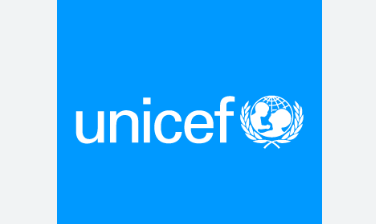United Nations (Web Desk/Agencies): The head of the United Nations Children’s Fund (UNICEF) has appealed for an immediate improvement in the security situation in Gaza, where dangerous operating conditions and attacks against humanitarian workers continue to hamper aid delivery to communities in need.
“Simply put – we do not have the necessary conditions in the Gaza Strip for a robust humanitarian response,” UNICEF Executive Director Catherine Russell said in a statement issued on Wednesday in the wake of an attack on one of the agency’s vehicles and the latest Israeli evacuation order in Khan Younis.
Ms. Russell began by highlighting the dire conditions in Gaza, where “with each passing week, families face new horrors.”
She said devastating attacks on schools and sites housing displaced people continue, reportedly killing hundreds more Palestinians and further straining the already overburdened hospitals in the enclave.
“The violence and deprivation are leaving permanent scars on their vulnerable bodies and minds. And now, with a breakdown in sanitation and sewage treatment, the polio virus joins the list of threats, especially for the thousands of unvaccinated children.”
Meanwhile, “as families are repeatedly forced to move to escape the immediate violence, the humanitarian situation is beyond catastrophic,” she said.
Although UNICEF and other humanitarian agencies are doing everything they can to respond, “the dire situation and attacks against humanitarian personnel continue to obstruct our efforts.”
Stating that the conditions in Gaza do not support a robust humanitarian response, she said that “the flow of aid must be unimpeded and access must be regular and safe.”
For nearly nine months, aid has trickled in, civilians have been deprived of supplies, and the commercial sector has been decimated, she said.
The result has been growing competition for the little that is available, smuggling of goods into Gaza, and the increasingly organized looting of aid supplies which “not only impedes our efforts to reach vulnerable families but puts our teams and the civilians we are supporting at risk.”
The situation is exacerbated by the operating conditions on the ground, she continued, noting that at least 278 aid workers have already been killed to date – a record number – while others are put in harm’s way or prevented from doing their jobs.
“We need an immediate improved security environment, including security for aid delivery trucks, to allow aid workers to safely reach the communities they intend to serve,” Ms. Russell said.
“Most critically, we need an immediate and sustainable ceasefire.”
The UNICEF chief called on all parties to the conflict to respect their obligations under international humanitarian law, and to protect civilians and civilian infrastructure.
“It is long past time for this crisis to end, for hostages to be returned to their families and for the children of Gaza to have a healthy and secure future,” she said.
Fifteen children from Gaza with complicated medical conditions arrived in Spain on Wednesday through an evacuation process involving the World Health Organization (WHO) and partners. The mother of one of the children will also receive treatment.
The patients had been in hospital in Egypt for the past several months, after evacuating from Gaza. They represent but a small portion of the thousands who need access to special medical care outside of the enclave.
“These very sick children will be getting the care they need thanks to cooperation between several partners and countries,” said Tedros Adhanom Ghebreyesus, the WHO Director-General.
While expressing gratitude to Egypt and Spain for their support and facilitation, he urged other countries “who have the capacity and medical facilities to welcome people who, through no fault of their own, are caught in the grips of this war.”
The children range between the ages of three and 17 years. Thirteen have complex injuries, one has a chronic heart condition, and one is living with cancer. They are being accompanied by 25 family members and other caregivers.
The youngsters have been in Egypt since before 6 May, after which evacuations became almost impossible with the closure of the Rafah crossing. Since then, only 23 people have been evacuated via the Kerem Shalom crossing.
WHO noted that roughly 5,000 people have been evacuated for treatment outside Gaza since last October. The majority, over 80 per cent, are receiving care in Egypt, Qatar and the United Arab Emirates. Another 10,000 Gazans still need to be evacuated.


